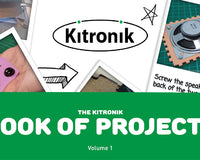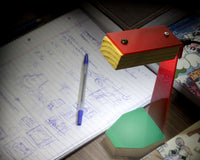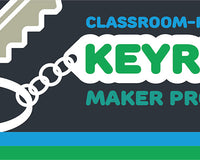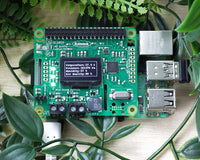 Another impact of consolidation of D&T into one subject is that all schools would need to be able to teach the full D&T content. At the moment a school can decide to only teach Product Design and not offer students the option of Electronic Products, under the proposal schools would need to offer a bit of everything across both subjects.
A number of teachers were understandably worried about whether they had the right skills for the new curriculum, though this can be addressed with a good training programme. The plus side of having one subject is that most students when choosing D&T aren't going to know what their main project is going to be and by including all aspects of D&T they will be able to specialise in the area their project requires.
Another impact of consolidation of D&T into one subject is that all schools would need to be able to teach the full D&T content. At the moment a school can decide to only teach Product Design and not offer students the option of Electronic Products, under the proposal schools would need to offer a bit of everything across both subjects.
A number of teachers were understandably worried about whether they had the right skills for the new curriculum, though this can be addressed with a good training programme. The plus side of having one subject is that most students when choosing D&T aren't going to know what their main project is going to be and by including all aspects of D&T they will be able to specialise in the area their project requires.
 We discussed the amount of course work or None Examined Assessment (NEA) as they are now calling it. The general opinion was that as this could have ended up being 100% exam with no practical assessment and that a the change to 50% exam and 50% NEA wasn't too bad. This is of course more than the current exam of 40% exam with 60% course work. Given that D&T is such a practical subject is it right to sit back and accept the change, should we even be pushing for a NEA content higher than the current 60%? The way the subject was to be assessed and how many marks would be available for each area was discussed generally this was thought to be sensible and didn't generate much debate.
We discussed the amount of course work or None Examined Assessment (NEA) as they are now calling it. The general opinion was that as this could have ended up being 100% exam with no practical assessment and that a the change to 50% exam and 50% NEA wasn't too bad. This is of course more than the current exam of 40% exam with 60% course work. Given that D&T is such a practical subject is it right to sit back and accept the change, should we even be pushing for a NEA content higher than the current 60%? The way the subject was to be assessed and how many marks would be available for each area was discussed generally this was thought to be sensible and didn't generate much debate.
 With many schools starting the main project earlier and earlier there was talk about forcing schools to start it after a set date though when that might be or how it could be enforced wasn't really get addressed. There was also some discussion on the topic of students being talked out of doing an interesting, different, and innovative but risky project and replacing it with a safe project to aid getting a good mark. Could the assessment give marks for innovation for example to try and encourage a bit of risk taking when choosing a more complex project?
With many schools starting the main project earlier and earlier there was talk about forcing schools to start it after a set date though when that might be or how it could be enforced wasn't really get addressed. There was also some discussion on the topic of students being talked out of doing an interesting, different, and innovative but risky project and replacing it with a safe project to aid getting a good mark. Could the assessment give marks for innovation for example to try and encourage a bit of risk taking when choosing a more complex project?
 The consultation is in two parts with the DfE looking after the subject content and Ofqual covering the way the subject is to be assessed. The closing date for comments is the 19th and 20th of November (for Ofqual and DfE respectively) and can be found at the following websites:
https://www.gov.uk/government/
The consultation is in two parts with the DfE looking after the subject content and Ofqual covering the way the subject is to be assessed. The closing date for comments is the 19th and 20th of November (for Ofqual and DfE respectively) and can be found at the following websites:
https://www.gov.uk/government/©Kitronik Ltd – You may print this page & link to it, but must not copy the page or part thereof without Kitronik's prior written consent.







